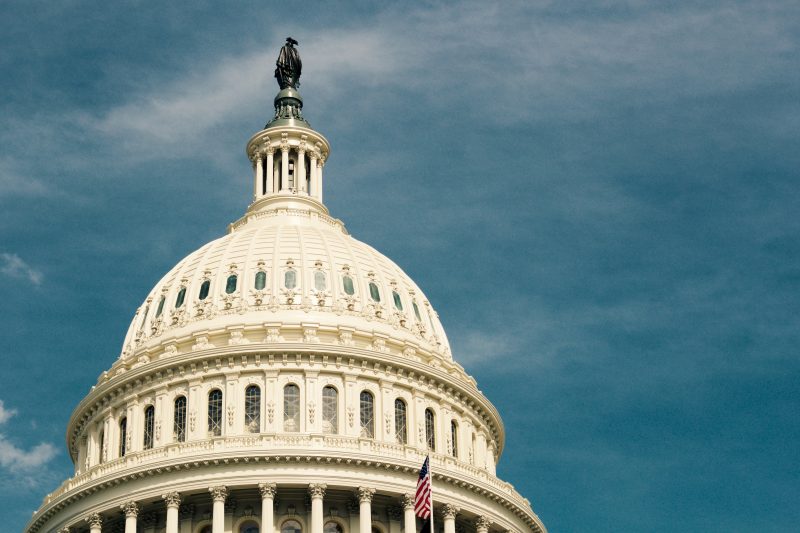Trinity University has enlisted former Texas congressman Henry Bonilla and two others to lobby against the proposed tax on private university endowments in the Republicans’ tax reform bill, which President Trump hopes to sign before the new year.
“House members apparently were not aware of how the legislative language in their tax bill was going to be very costly to schools like Trinity,” Bonilla wrote in an email interview on Wednesday, Dec. 13. “Ideally, we’d like to eliminate the new tax proposed on university endowments like Trinity. However, at this point we’re trying to negotiate legislative language that would exempt schools under certain criteria that would include Trinity.”
On Friday, Dec. 15, a conference committee comprising members of both the House and the Senate agreed to a version of the legislation that includes a 1.4 percent tax on investment income made on some private university endowments.
A school’s endowment earnings will be taxed if the school enrolls at least 500 full-time students and its endowment is valued at $500,000 per student; Trinity, which stands to lose $3 million annually, is among the roughly 35 institutions that would be affected. In late November, the Trinitonian reported that this would signify a loss worth 72 students’ financial aid.
The House will vote on the bill on Tuesday, Dec. 19, and the Senate is expected to follow suit that evening or the following morning. If both chambers approve the bill, Trump will sign it into law by the end of next week.
Bonilla says that the legislation’s final text might allow for Trinity to face a reduced rate.
“The language in the final bill is much improved for Trinity,” Bonilla wrote on Saturday. “Specific criteria to meet for lower tax rates will be determined next year by the Treasury Department, so there’s more work ahead for Trinity.”
According to university president Danny Anderson, Trinity grew concerned about the bill’s language in mid-November.
“We work in a very lean environment. Many schools with the kind of endowment that we have also have full-time government relations staff who are working year-round, maintaining relationships with government groups, both at the state and the federal level,” Anderson said. “I was spending more and more of my time trying to network with all of those government relationship staffs from other universities, and that’s not an efficient use of my time.”
So Tess Coody-Anders, who was hired this year as Trinity’s first vice president for strategic communications and marketing, suggested finding lobbyists to advance the university’s interests on Capitol Hill.
“This university is full of educators and administrators, but not legislators,” Coody-Anders said. “So the idea was that we would identify someone who … understands Trinity and its mission, understands what our goals are, understands how to navigate the rules of committee structures and relationships in the Senate and the House.”
She suggested Bonilla, a native San Antonian who served as a Texas Republican congressman for 14 years and now works with the Normandy Group, a bipartisan lobbying firm in Washington, D.C. He and two colleagues, Christine Pellerin and Alex Catanese, were registered as tax lobbyists for Trinity on Dec. 4.
“Our endowment funds nearly 40 percent of what we do at the university, and if that endowment is significantly impacted, the money has to be made up somewhere,” Coody-Anders said. “We definitely don’t want to see that happen, so sometimes you do extraordinary things and take exceptional measures that would not be standard operating procedure.”
Bonilla, Catanese and Pellerin are contracted to lobby on the university’s behalf for the next two months. The university considers the hiring as an investment in higher education.
“This is a new tax on nonprofit, higher-education institutions,” Coody-Anders said. “So we want to make sure that we’re sharing with people that, if we do it this way, this is what it costs us and what it costs our students and families.”
According to Anderson, the tax would most impact the scholarship funds available for students.
“We gave out $51 million in different kinds of scholarship and support last year. We drew $47 million out of our endowment,” Anderson said. “So if we only had 45, 46, 43 million, that is less money to contribute to scholarships.”
Anderson offered other criticisms of the bill in an opinion column he co-wrote with Gregory Fenves, president of the University of Texas at Austin, and published in the Austin American-Statesman, the Corpus Christi Caller-Times and the Waco Tribune-Herald. They say the tax will cost the government more in needs-based federal aid, and set a precedent that may license future taxes on donations to state universities.
Trinity is paying for the Normandy Group’s services out of the university’s annual operating budget; Coody-Anders was not at liberty to disclose the cost of lobbying, citing the Normandy Group’s agreement with the university, but said that it is consistent with payments made to other professional services, for instance, attorneys and outside accountants.
“When you think about the potential dollar impact to the university, the millions and millions of dollars — spending whatever number of dollars, a small amount of money to get some extra help on this, will be very positive,” Coody-Anders said.
Students eyeing graduate studies will be relieved to hear that a provision that would have regarded tuition waivers as taxable income has been removed from the legislation.













